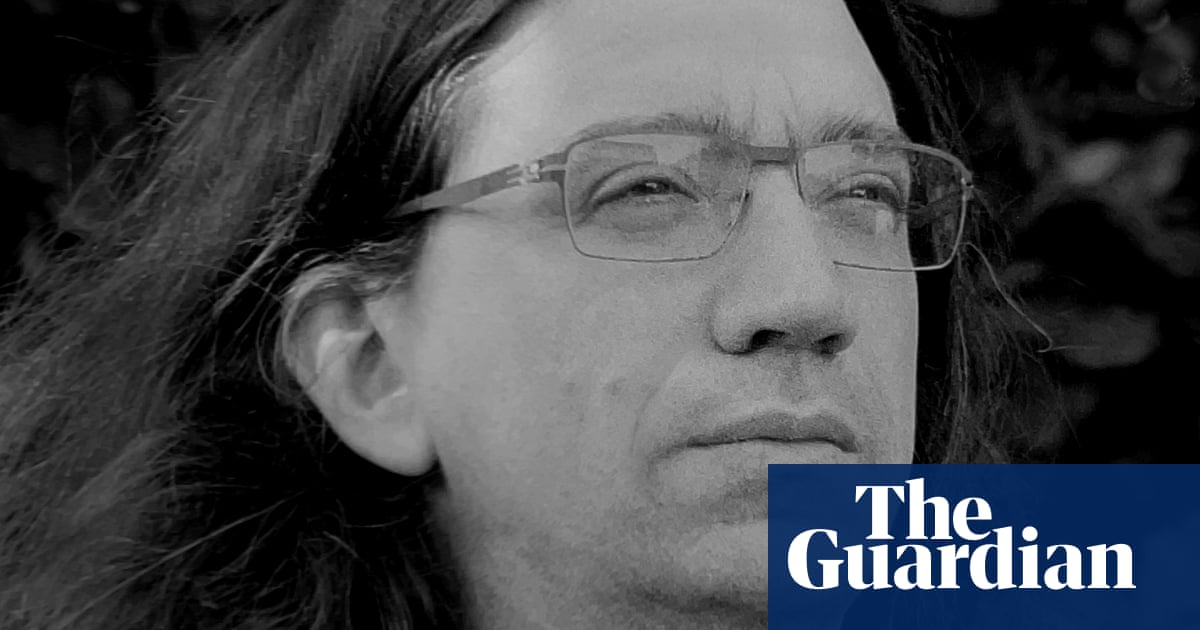An extremist blogger, who has become the Trump administration’s so-called “dark enlightenment” sage, is debating a Harvard professor of political philosophy at an unsanctioned event on its campus next week.
Curtis Yarvin, who was for a time an obscure darling of Silicon Valley and the broader spectrum of the fringe right wing, has emerged as a major philosophical influence on key Capitol Hill power brokers. He is considered a favorite of Vice-President JD Vance, an ally of the tech mogul Peter Thiel, and having the ear of senior state department official, Michael Anton, among others.
Yarvin’s outlandish politics vouching for dictatorships and a new “American Caesar”, as he discussed in a2021 podcast with Anton, in place of liberal democracy has made him both a much-maligned and loved figure.
Yarvin has also promoted blatant rightwing extremism, in the present and past: under his pen name Mencius Moldbug, he argued the racist, Norwegian mass murderer Anders Breivik was no more a terrorist thanNelson Mandela; he has also recently asserted the well-trodden, bigoted and historical trope thatBlack Americans under slaveryin the old south, enjoyed much better living standards as chattel.
Last December, Robert Evans, an extremism researcher and podcast host,flagged to the Guardianhow Yarvin’s writings had swayed the Magaverse.
“He emerged into a rightwing media space where they had been talking about the evils of liberal media and corrupt academic institutions for decades,” said Evans. “He has influenced a lot of people in the incoming administration and a lot of other influential people on the right.”
But now, the mainstreaming of Yarvin’s ideas has been taken to new and dangerous platforms with his connections to White House figures and the unsanctioned debate with a respected professor,Danielle Allen, at the most prestigious academic institution in the world.
The tête-à-tête between Yarvin and Allen is being staged byPassage Press– a far-right book publishing house that publishes proto-fascist thinkers and other extremist literature. Billed as a discussion on “American democracy” a Passage Pressflyer spread onlinesays it is “not affiliated with Harvard University”, nor is it “a Harvard University program or activity”.
“Students asked me to participate,” said Allen, when asked about why she was debating Yarvin. Multiple requests for comment sent to Harvard about the debate went unanswered.
In a meandering and widely cited interview withthe New York Times in January, Yarvin tried laundering his ideas under the guise of advocating for a CEO-led US government, which is shorthand for an unelected dictatorship. Whenever challenged to answer direct questions on some of his most controversial blogs, Yarvin obfuscated.
Throughout the interview, it was clear that one of the main sources of his ire was liberal academics and institutions like Harvard.
“We don’t worship these same gods,” Yarvin said, referring to the Massachusetts-based university and his cohort of thinkers.
Why Yarvin is headed to the belly of his enemy isn’t clear. But the symbolism of it in effect validates him in the eyes of his followers and rivals.
“Yarvin is concerned with spreading his reactionary ideology,” saidEd Ongweso Jr, a senior researcher atSecurity in Context, an international project of scholars housed at the University of Massachusetts Amherst. “He believes democracy is inferior to some sort of authoritarian monarchy, that apartheid is better than universal suffrage, and that liberals are feckless enough to let him come into their spaces and preach his nonsense.”
Ongweso has written extensively and critically about the neo-fascistic ambitions ofthe tech bro elite, which has obsequiously warmed up to Donald Trump, in a transparent attempt to use him to create a future political order that favors them.
“[The] Trump administration is dominated by three groups of political actors,” said Ongweso citing thehistorian Quinn Slobodian, “a Silicon Valley-Wall Street nexus that wants a sleek state to maximize their returns; anti-New Deal conservatives who want a shackled state to abandon social welfare; extremely online anarcho-capitalists, monarchists and fascists who want to shatter the state so they can experiment with decentralized forms of private tyrannies.”
Ongweso argued that Yarvin’s view of the world virtually satisfied and championed all of those groups.
In line with Yarvin’s writings clamoring for a conservative rebirth of educational institutions in America, something not so dissimilar to what Viktor Orbánhas already done in Hungary, the White House hasgone to war with US universitiespromising to cut funding if they ideologically defy the Maga movement. Part of that has included a lawsuit betweenHarvard and the justice departmentas American post-secondary institutions begin to rediscover their backbone.
Yarvin’s appearance on campus, in effect, seems timed as a coordinated troll of Harvard and adding another arena of battle for neo-conservatives on liberal universities.
“As a person who has spoken against Harvard and higher education as a plague on society, it would be too good of a chance to pass up, especially with a Harvard professor participating,” said Wendy Via, the co-founder of theGlobal Project Against Hate and Extremism (GPHAE)who specializes in far-right extremism. “As with others who advocate for a dictatorial/authoritarian government, he knows that capturing education is essential to implementing other aspects of authoritarianism.”
Via continued: “His beliefs would almost demand his presence since Harvard has taken such a strong stance against the administration’s coercion, while other institutions have capitulated.”
Yarvin is beginning to represent, along with his allies in the rightwing corners of the “Silicon Reich”, the growing calls to destroy American democracy and replace it with a new feudalism; something Vance, the second most powerful person in the US government, seems at the very least to befascinated with.
“The United States was a barbaric apartheid regime for most of its history,” said Ongweso, who made the point that it has only been decades since a majority of Americans had full access to the democracy enjoyed today.
“It’s a fragile development,” he said. “I’m worried that if Yarvin and his cadre have their way, we’ll never get it back.”
